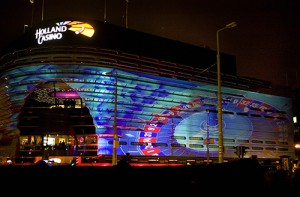Holland Casino is in decidedly choppy waters - losing money and cutting costs as punters drift away. Stewart Darkin takes a closer look at why, in the case of the Netherlands, the house isn’t winning.


AFTER something of a troubled genesis, just six years ago business was brisk and on the up for Holland Casino, the legal state monopoly that operates the Netherlands’ 14 casinos. It hadn’t always been that way. The legal foundation of Dutch gaming policy still lies in the Dutch Betting and Gaming Act 1964, which stipulates that offering or promoting games of chance without a licence is prohibited. But it wasn’t until around a decade later that the regulated casino industry in the Netherlands was formed and another 10 years or so before it really got to grips with the market. In the wake of the 1964 act, illegal gambling began to increase to the extent that in the mid-seventies – and coupled with the desire to attract new tourists to the country - the Dutch authorities had little option but to regulate it. In 1976, policy makers sought to deliver a regulated land-based casino market while at the same time pushing out the innumerable illegal operations. Killing two birds with one stone, in short. But the aim was off. In October 1976, the first of these new casinos opened – at the seaside resort of Zandvoort in the north of the country. This wasn’t solely borne of a desire to conjure a new Monte Carlo, more the need to create an outlet for Dutch high rollers and tourists away from the illegal gambling dens of Amsterdam and Rotterdam. The new casinos employed a high proportion of immigrant workers; some could not speak Dutch and few had any experience of the gambling industry – a consequence of excluding those involved in illegal gambling activities.
Read the full article in the July issue of InterGaming.

